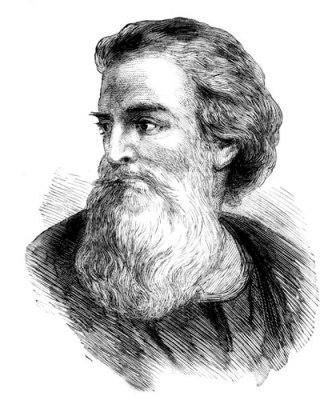Paul
 Born around the beginning of the Common Era, Paul was a
Hellenistic Jew who, according to tradition, was a Pharisee
and may have been a member of the Sanhedrin. He was
responsible for working against the development of
Christianity but, according to his own accounts, he heard
the voice of Jesus and was struck blind while on his way to
Damascus.
Born around the beginning of the Common Era, Paul was a
Hellenistic Jew who, according to tradition, was a Pharisee
and may have been a member of the Sanhedrin. He was
responsible for working against the development of
Christianity but, according to his own accounts, he heard
the voice of Jesus and was struck blind while on his way to
Damascus.
After this time, he became an ardent defender and
promoter of Christianity, even taking for himself the title
"apostle" and eventually became responsible for many of the
books in the New Testament. Some lists of the apostles
apparently include Paul as the twelfth apostle, replacing
Matthias. Since Paul asserted the authority to be an apostle
to the Gentiles, though, he is more appropriately listed as
the thirteenth because for Christian symbolism to work there
needs to be twelve apostles representing the original twelve
Hebrew tribes and then a thirteenth for non-Jews.
Paul insisted on using the title apostle despite never
having met Jesus and never being called personally by Jesus
because of his vision on the road to Damascus. Paul claimed
that the resurrected Jesus spoke to him and called him at
that time. Taking the title "apostle" has clear political
implications because the original apostles would have had
the greatest authority within the growing Christian
movement. They were, after all, the ones who had personally
known and personally been called by Jesus. This would have
put Paul in a secondary position at best, especially given
his recent background as an opponent of Christianity.
Adopting the title apostle could have been perceived as
an attempt to assert equal authority alongside the original
apostles, especially since Paul claimed to have been called
by the resurrected Jesus rather than by Jesus when he was
still alive. On more than one occasion in his letters Paul
has to defend his status as an apostle, suggesting that it
was questioned by various people.
 Born around the beginning of the Common Era, Paul was a
Hellenistic Jew who, according to tradition, was a Pharisee
and may have been a member of the Sanhedrin. He was
responsible for working against the development of
Christianity but, according to his own accounts, he heard
the voice of Jesus and was struck blind while on his way to
Damascus.
Born around the beginning of the Common Era, Paul was a
Hellenistic Jew who, according to tradition, was a Pharisee
and may have been a member of the Sanhedrin. He was
responsible for working against the development of
Christianity but, according to his own accounts, he heard
the voice of Jesus and was struck blind while on his way to
Damascus.